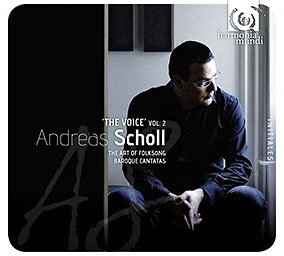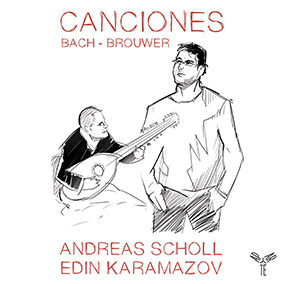
Canciones
My new CD „Canciones“ with music by J.S.Bach and Leo Brouwer is out!
My friend Edin Karamazov and I recorded this project in my „Friendship 7“ recording studio in Kiedrich/Germany. Maestro Brouwer arranged three English Folksongs for Edin and me especially for this recording. We also play his „Canciones amatorias“; three pieces for guitar and countertenor which he composed in 2011. (dedicated originally to my dutch countertenor colleague Sytse Buwalda and the guitarist Saskia Spinder) as well as songs and lute music by J.S. Bach.
Below you can find links to some of the videoclips that I produced for the recording:
https://youtu.be/gdOdXqJiWac
https://youtu.be/XcAdDCH8wi0
https://youtu.be/GVFUrumrB4s
https://youtu.be/1oFnI51kees
https://youtu.be/OBua7eLTBbQ
https://youtu.be/moMQyeOXW90
To buy (or listen) to the CD:
https://lnk.to/canciones
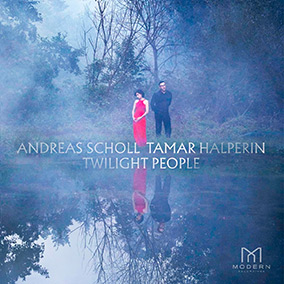
Twilight People
Ever since I was a student in Basel, I have had a profound love for folk songs. I discovered the English repertoire of folk songs through my teacher, Richard Levitt, Alfred Deller’s magic recordings, and my wonderful colleague, Kathleen Dineen. Throughout the years, folk songs accompanied me in lute song recitals as well as in my recording, „Wayfaring Stranger“ with the Orpheus Chamber Orchestra. When I contemplated what kind of music to choose for a new CD recording, my wife Tamar suggested a selection of folksongs arranged by famous composers. We included two contemporary compositions by Ari Frankel and Joseph Tawadros. These beautiful pieces are the frame for Aron Copland’s, Benjamin Britten’s, Ralph Vaughn Williams’ and Alban Bergs’ perspective on folk-like songs.
I have to say that Ari Frankel’s „The Rest“ resonated with me a lot and I dedicated a video-clip (https://www.youtube.com/watch?v=saBsn1dtCmA) to it that reflects Ari’s message. His poem was inspired by Italian author Primo Levi.
Other presentation video-clips for the CD:
https://www.youtube.com/watch?v=v1sIkItKWnw
https://www.youtube.com/watch?v=Qgd4cHnI4rg
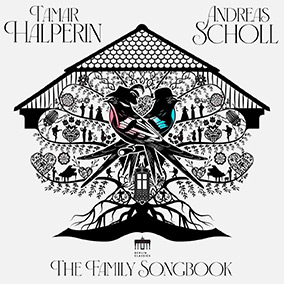
The Family Song Book
In the past, whenever I visited my wife’s family in Israel, I was impressed by the important role that music plays for all of them. My wife’s brother, Ron, is an excellent guitarist, and so is her cousin, Ofer. Ofer’s wife, Yael, is a professional singer, whose voice is one of the most beautiful I have ever heard. Cousin Amir impressed me with his singing and piano skills when, after a family dinner, he covered Billy Joel’s „Piano man,“ with everybody else joining the family band and singing along.
Then our daughter, Alma, was born. My wife, Tamar, and I naturally played and sang many different songs for her. And since we have a recording studio here at home, we thought to record some of these songs, so that many years from now our daughter will be able to listen and be reminded of the music of her childhood.
When we planned this recording, it suddenly occurred to me that it could be a fantastic opportunity to invite our extended family over for a week of music recording, BBQ’ing and Riesling.
Tamar and I then set out to organize flights, hotels, babysitters, catering, and of course song choices and arrangements to fit our particular, peculiar band. The result of this is our „Family Songbook“ album that was recorded during a beautifully warm week in May 2018. Thirteen family members came from Israel (7 adults and 6 children) joining my family in Kiedrich (my mother, sister, brother, and daughters), our friends, singer Maya Avraham and drummer Nicolai Ziel, assistant recoding engineer Benedikt Vogt, producer Guy Sternberg, and Guy’s family: all in all more than 30 people participated in this adventure. One highlight for me was my duet with my oldest daughter, Clara. She joined me for Yoni Rechter’s „Layla tov“, singing in Hebrew for the first time.
The songs on the album are in English, German, and Hebrew. Some are children’s songs, some are lullabies, and some are just family favorites which we enjoy singing and playing together.
Presentation video-clips for the CD:
https://www.youtube.com/watch?v=oJzTAgtsS9Q
https://www.youtube.com/watch?v=TGaRUULh74k
https://www.youtube.com/watch?v=NyXzPpmweW4
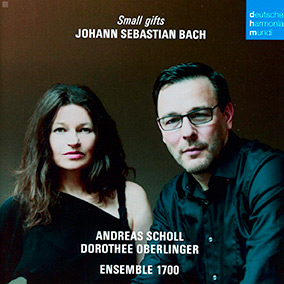
Small Gifts
I knew Dorothee Oberlinger only through her recordings and her almost legendary reputation as the worlds leading recorder player, when she contacted me about 7 years ago to propose a collaboration for a new project. Meanwhile we performed together in many different concerts with her beautiful „Ensemble 1700“ and I experienced her talent not only as a leading recorder player, but also as a highly competent orchestra leader. In „Small gifts“ we give a new perspective to Bach’s wonderful Alto-Solo cantata 170 „Vergnügte Ruh“. Instead of the organ playing two voices (on two manuals) in the second aria „Wie jammern mich doch die verkehrten Herzen“, we decided to have two flutes instead. It transforms the character of the piece beautifully. You will also find Dorothee’s amazing transcription of Bach’s Harpsichord Concert No.5 on this recording.
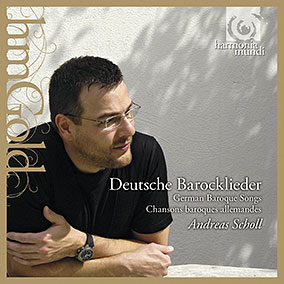
Deutsche Barocklieder
This was my first ever Solo-CD. My teacher René Jacobs suggested repertoire in my mother tongue and proposed many of these beautiful songs. Eva Coutaz of Harmonia Mundi liked the idea and gave me this wonderful opportunity to record a solo CD. I still work to this day with most of the musicians that participated in this recording. Some of them even played in my student recitals in Basel.
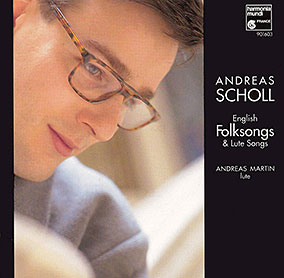
English Folksongs & Lute Songs
With my second Solo-CD I ventured into the typical „Countertenor-repertoire“. During my studies I discovered Alfred Deller´s recordings and was amazed by his inimitable effortless floating quality of sound. His interpretations of English folk songs are unsurpassed. I fell in love with this repertoire and still today I love to sing English folk songs in my recitals.
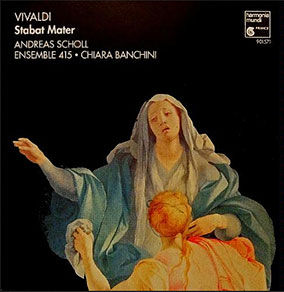
Vivaldi Stabat Mater
I met Chiara Banchini during my studies in Basel and sung under her direction in some Schola Cantorum Basiliensis concerts there. Chiara´s „Ensemble 415“ had recorded for Harmonia Mundi before and that meant that I got to record Vivaldi´s „Stabat Mater“ with one of the top baroque ensembles at that time.
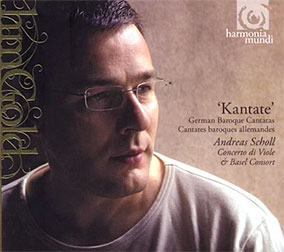
Kantate
This recording is one of my all-time favourites. Again we re-united the friends from the Schola Cantorum who greatly helped me in finding this beautiful repertoire. The „Concerto di Viole“ is one of the world’s leading viola da gamba ensembles. I especially love: J.C. Bach: „Lamento“ , Erlebach „Wer sich dem Himmel wird übergeben“ and Buxtehudes „Klaglied“.
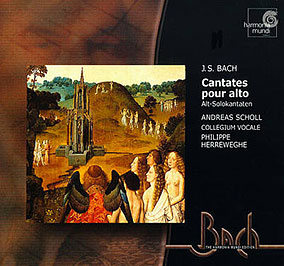
Cantates pour Alto
If there is any conductor who helped me to understand Bach´s music on a profound level, it must be Phillippe Herreweghe. He reveals the details of the composition carefully and unfolds them to the listener, rather than going for the ostensible effect. Cantata 35 belongs to the most difficult pieces that Bach wrote for the alto voice, but thanks to Philippe´s and his wife Ageet´s support the recording process felt like floating on a magic carpet. I am still grateful today, that I got to record these beautiful cantatas with him and his wonderful orchestra.
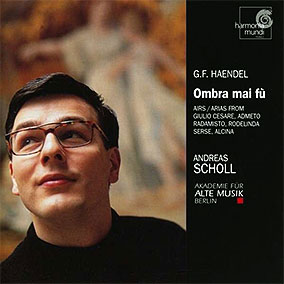
Ombra Mai Fu
It took a while before I recorded my first Handel-Aria album. With the „Akademie für Alte Musik Berlin“ under Bernhard Fork´s direction we recorded some of the most beautiful opera arias by Handel.
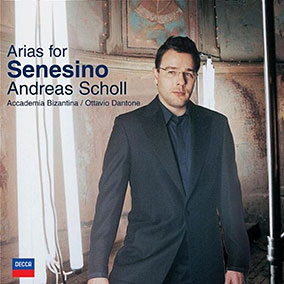
Arias for Senesino
This is another recording with my friends from the „Accademia Bizantina“ under the direction of Ottavio Dantone. Already as a student, I found out, that everything Handel wrote for the famous alto castrato „Senesino“ suited my voice perfectly. Handel understood the human voice and the nature of singers like few other composers and these arias were „tailor-made“ for Senesino.
To be allowed to bring them to life today and sing hits like „Dove sei“ and „Cara sposa“, is always a joy. As often as I sing these musical jewels, it never becomes a routine. Senesino travelled far across Europe and met Handel for the first time in Dresden. We followed in his footsteps, collecting arias from other composers that wrote for him, such as Albinoni, Scarlatti, Lotti and Porpora. One of the highlights is Porpora´s „Va per le vene il sangue“ , which creates a strong musical tension through a repetitive pattern in the violins. It sound almost like todays film music.
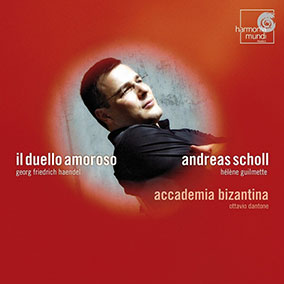
Duello Amoroso
In 2004 I was invited to be a jury-member for the „Concours International Reine Élisabeth“ in Brussels, where I heard the wonderful Hélène Guilmette. She amazed the audience with her interpretations of Handel as well as Verdi arias ! I invited her to record Handel´s „Duello amoroso“ with me and the „Accademia Bizantina“ under Ottavio Dantone´s direction. It was pure joy to sing with Hélène and I hope we´ll sing many more concerts and recordings together in the future.
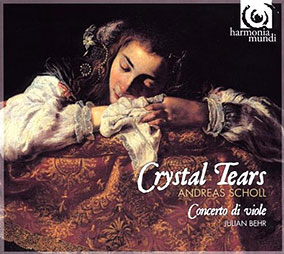
Crystal Tears
Again I joined forces with my friends from the „Concerto di Viole“ and recorded this CD with English consort music. This was the first time that I did not only sing but also recorded video shots for the „EPK“ (Electronic Press Kit). Nayo Tizin the director of this EPK used some of my shots in the video-clip for „Venus Birds“ by John Bennet. (http://www.youtube.com/watch?v=7KwHErv7Ryk)
This was the first time that I whistled on a recording!
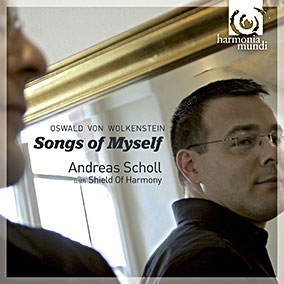
Songs of Myself
As a student I sang a few songs by Oswald von Wolkenstein after listening to an old recording by Thomas Binkley´s „Studio der frühen Musik“. My teacher Richard Levitt sings on this recording along with Andrea von Ramm. Later I decided to record a „Wolkenstein CD“ myself.
I especially enjoyed singing the duets with my old friend Kathleen Dineen who possesses one of the most beautiful voices I know. Crawford Young and his „Shield of Harmony“ ensemble accompanied me on this recording. We turned this project into a staged production under the direction of Jos Groenier which included Oswald himself (played by Reinout Bussemaker) and video projections by Joost Gulien. This was one of the most beautiful concert projects I have done and I want to „translate“ many more early music concerts into this new form of presentation.
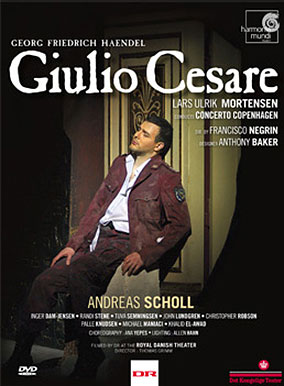
Giulio Cesare (DVD)
The 2002 production of Giulio Cesare at the Royal Danish Opera in Copenhagen was my first time singing the role of the Roman emperor in Handel´s masterpiece. For most countertenors singing „Cesare“ is a dream coming true and Francisco Negrin´s production made this dream come true for me. The rehearsal weeks with my wonderful colleagues Inger Dam Jensen, Tuva Semmingsen, Palle Knudsen and Randi Stene were some of the happiest weeks of my life. I am grateful that Eva Coutaz of Harmonia Mundi France agreed to release the Danish TV recording on DVD.
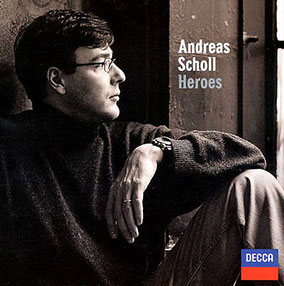
Heroes
Back in the days when record companies still had A&R (Artist & Repertoire) managers I was asked by Evans Mirageas, whether I would join his company DECCA for future recordings. He managed to get Sir Roger Norrington and the „Orchestra of the Age of Enlightenment“ on board. As a „Debut on DECCA“ CD we assembled a representative collection of famous arias written for the alto-castrato voice. The carefully planned following four recordings were already drafted before this first DECCA CD was out; a long term strategy that unfortunately doesn´t exist anymore today with record labels.
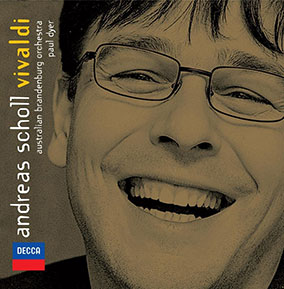
Nisi Dominus (Vivaldi)
During a taxi ride in London Evans Mirageas (Decca´s A&R director) asked me who would be my orchestra of choice for the upcoming Vivaldi recording. I had just worked for the first time with Paul Dyer´s „Australian Brandenburg Orchestra“ in Sydney and was still under the spell of their magnificent playing. When I proposed to record this CD in Australia with the ABO Evan´s was speechless for only a few seconds and then said: „Let´s see how we can make this happen“. Half a year later we all met in Sydney and DECCA co-produced the recording with the Australian Broadcasting Company! This CD was a big success and resulted in a „debut“ European tour for the ABO and Paul during which we managed to sell out a „Late night Proms“ concert at the Royal Albert Hall in London. The story of how this entire project came into being and the admiration for Evans Mirageas´ incredible work make this one of my favourite projects ever.
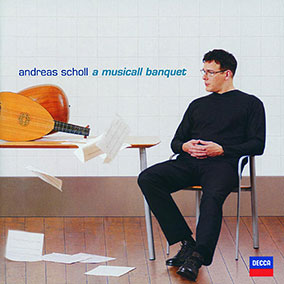
A musicall Banquet
Back in the days when artists participated in almost every aspect of their CD productions, Mark Millington the creative and art director at DECCA asked me about ideas for the „Musicall Banquet“ cover. I thought it would be fun to create a coolish, sober atmosphere with an instrument and music sheets as „food“ instead of a „Still Life“. The CD had some very special friends participating: Edin Karamazov played the lute and Markus Märkl harpsichord. I had sung many concerts under Christophe Coins direction and almost didn´t dare to ask him to join us for just a couple of songs but he didn´t hesitate and „crowned“ this recording with his participation.
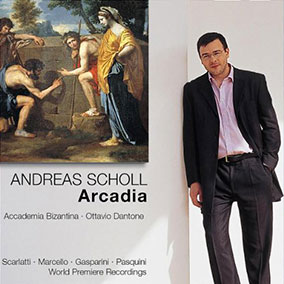
Arcadia
The stories about Arcadia and the mystery that accompanies this theme through countless books have always fascinated me. When I read about the „Accademia degli Arcadi“, a circle of poets and composers in Rome, I knew that I needed to find out more about their compositions. With the help of musicologist Alessandro Borin DECCA created modern editions from the old Italian manuscripts of Pasquini, Marcello, Gasparini and others. This was my first recording with Ottavio Dantone and his amazing „Accademia Bizantina“ whom I had met just a year before for a concert in Beaune. Over the years I continued to work with this group in many concert-tours all over Europe.
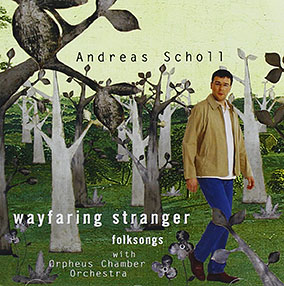
Wayfaring Stranger
In one of my favourite recordings Charlie Haden sings the old folksong „I am a poor wayfaring stranger“ and I was deeply moved by his singing. I know the song in many other interpretations, but Haden singing it in Alan Broadbent’s arrangement, is the most special of them all.
I proposed a „contemporary folksong“ recording to DECCA and I am grateful that they enabled me to realise this heartfelt wish.
Craig Leon was asked by DECCA to arrange some of the most beautiful folk-songs for the „Orpheus Chamber Orchestra“. Edin Karamazov on the lute and harpist Stacey Shames played with the orchestra and I especially enjoyed singing „Annie Laurie“ with them!
This was one of the most polarising CD´s I ever recorded. It was never meant to be an „early music“ or „classical“ CD; nevertheless classic and early music critics felt compelled to review it and applied their standard listening tools to something that falls into a different genre altogether. But how boring would my life be if I would only strive to satisfy everybody else’s expectations.
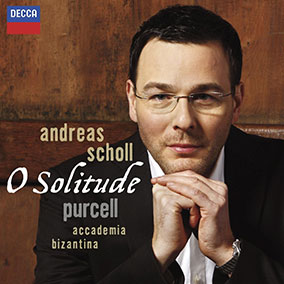
O Solitude
After a few years of abscence from DECCA I returned with the recording of „O solitude“. Stefano Montanari conducted the „Accademia Bizantina“ in a recording that happened during a heatwave in August 2011 in Bagno Cavallo Italy. We were all playing and singing barefoot and in shorts...
I especially enjoyed singing „Dido´s lament“ on this CD. For the Countertenor Duets I invited my friend Christophe Dumeaux, with whom I sung many opera performances together. My teacher Richard Levitt completed the team as vocal coach. This recording won the „BBC Music Award“ in 2012 and was criticised for the use of a harp in the continuo section by a british musicologist.
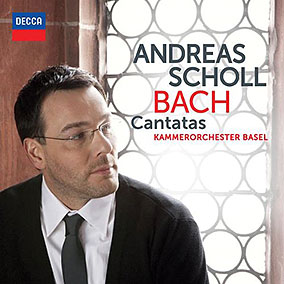
Bach Cantatas
„Back to Bach“ could be the title for this CD. I recorded three Solo-Cantatas for the alto voice many years ago with Philippe Herreweghe and completed the collection with Cantata BWV 82 „Ich habe genug“ and Cantata 169 „Gott soll allein mein Herze haben“.
I always claim that Bach´s Alto-Solo Catatas belong to the most challenging pieces in the baroque music repertoire and again I experienced Bach´s genius together with the „Kammerorchester Basel“ for this recording. The church in Guebwiller (Alsace) was terribly cold in January and while orchestra looked like an arctic expedition team I wore 4 layers of thermo-clothing trying to relax and forget the cold whenever the „red light“ went on.
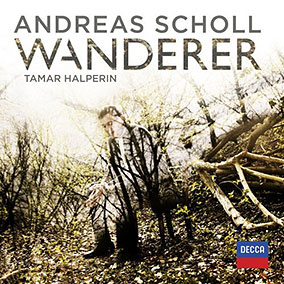
Wanderer
The journey from the „Deutsche Barocklieder“ to the „Wanderer“ recording was a long one. Almost 20 years of singing a great variety of repertoire from medieval, renaissance and baroque music lead to the idea for this CD. In my opinion the approach towards a Brahms or Schubert song is not so different from the one towards a Dowland or Purcell song.
The words and the story need to be clear at all times and should have priority over „style“. In the beautiful „Markus Sittikus“ hall in Hohenems (Austria) I spent four days with my wife Tamar playing the piano, choosing the „songs for the day“ according to our gut feeling.
In a way these „minimal“ recordings (just two musicians) offer a flexibility and a stress-free work environment that recordings with a large ensemble simply can´t.
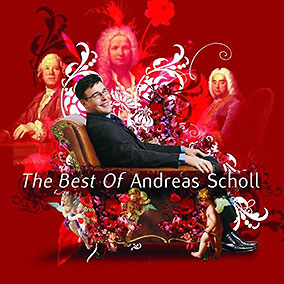
The Best of Andreas Scholl
This is a DECCA compilation with arias and songs I recorded before 2006. It´s a good recommendation for everybody who wants to get a great variety of repertoire sung by me. The Korean Song „Arirang“ can be found only on this CD!
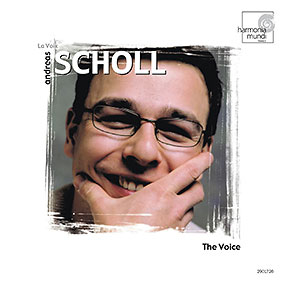
Andreas Scholl: The Voice
I was honored that Harmonia Mundi released this beautiful compilation, however I still think that the title ‘The Voice’ will always belong to Frank Sinatra.
